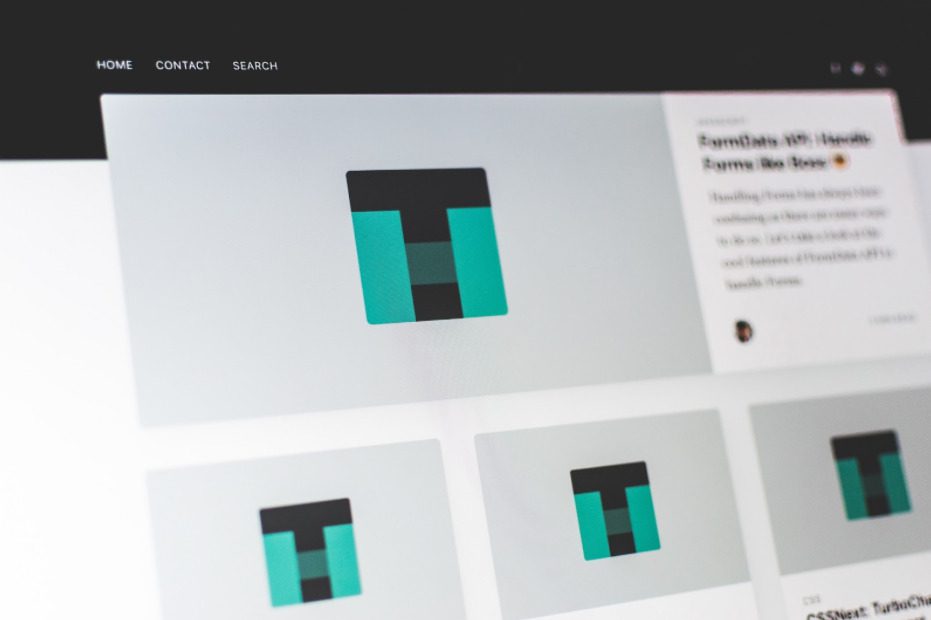There are two major ways to develop an eCommerce website – using a template or custom building. To make the best choice for your business it is essential to understand the differences and features of either. There is no right or wrong answer in this discussion – what is a success for one eStore can be a disaster for another. So, the very first step is a good and deep understanding of business specifications, needs, timeframe, product type, budget, and skill available. After having decided on what is available and required for your business it is time to analyze the differences between custom vs template websites.
Basics of website building
Sometimes the basics get overlooked. For example, it is common to oversee the fact that custom website design vs template implies way more than UI. It is easy to forget that “custom design” means UI as well code design, extensions selection, data structure design, and implies from-scratch creation of all aspects of a website. Using a template automatically resonates with visual representation, however, templates and frameworks cover both front-end and back-end. Keeping this in mind is key – this can be a deal-breaker in strategic decision-making.
Template website
Pros:
- Starting a template website is rather on the cheap side. This is a good solution for businesses with a small budget, or the ones only starting up.
- Since templates cover both the back and front end it can be notoriously faster until you get MVP (Minimum Viable Product). Without much deviation from the most basic templates the website can be built in quite a short time (which still depends on the scale, of course).
- Large number of templates are user-friendly. Hiring a tech team is still usually essential, but the skill and the amount of people are generally lower than in the case of custom building.
Cons:
- Most common issue with template websites is that a lot of them can end up looking pretty similar. This occurs due to a variety of reasons: limited design options available in general, time pressure, less skilled developers. On top of that, there are customization limitations – a lot of templates simply do not accommodate certain features. This can include UI, functionality, responsiveness, and back-end constraints. So, in case you are looking for something bespoke and want to flash unique design solutions template might simply be the wrong choice.
- Another con to consider is restraints on cross-platform availability. Template websites do not have the capacity to be supported by every platform and device, so knowing your customers’ usage trends is extremely important.
- Usually, template website platforms allow adding on extensions and custom modules. However, this can lead to compatibility issues. For example, since template providers make updates, they might be dropping support for modules crucial for your business.
- Finally, what tends to be a recurring issue with template websites is miscalculating the estimates. More often than not development runs into several issues, which require more time and resources. Since template websites are considered to be “easier and quicker” a number of pitfalls get overlooked. In the end, template building can be way more expensive and time-consuming than anticipated.
Custom website building
Pros:
- The first thing that stands out in custom-built websites is unique design and branding. It is the best way to create a special and memorable web space for your business. Customization will allow to suit all possible business needs, regardless of how specific they are. Both design and functionality can respond to the most peculiar business expectations.
- Custom-built websites can run on as many platforms as planned. It is possible to test against every platform to ensure smooth running and no unexpected errors occurring. This allows ensuring that every feature is supported cross-platform/browser and users will not be missing out by using “suboptimal” browsers or devices.
- Custom building suggests bringing in as many external modules as needed – for example, security and search engine components are commonly imported. However, there is no risk of compatibility issues. Besides, the choice of modules and components is unlimited, which in return allows for better functionality.
- Custom building saves time in the long run – for example, initial development can lay the foundation for future business needs or accommodate for scalability changes in the future. Moreover, the original developers’ team is always going to be available to provide support or maintenance.
Cons:
- There are two major drawbacks of custom site building – cost and time. Producing MVP will take significantly longer – yet in the future, this will pay off with less development effort.
Conclusion
There is time and place for both custom-built websites and template-built sites. If you believe the benefits of a custom website vs template outweigh the drawbacks, our custom eCommerce website development teams are always there to help you.



































